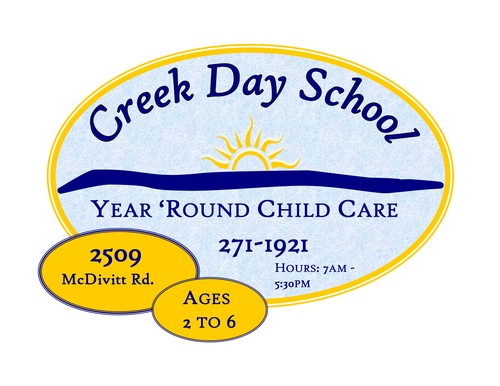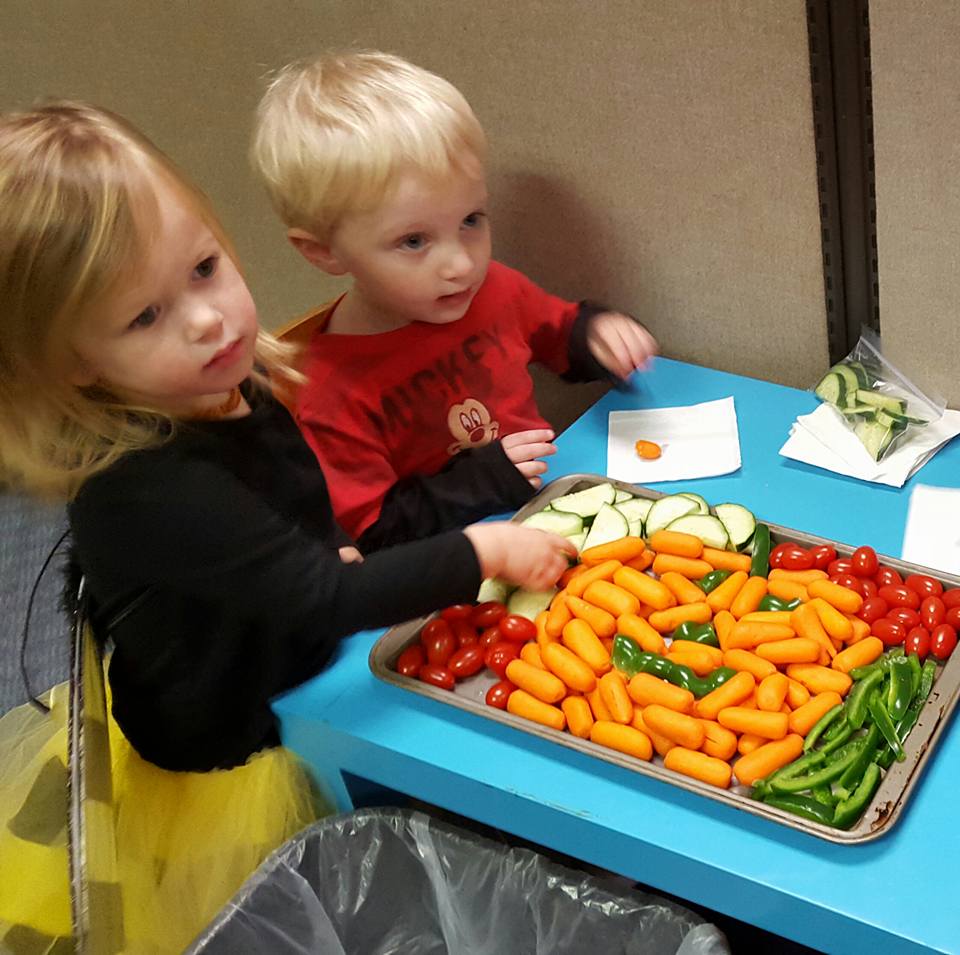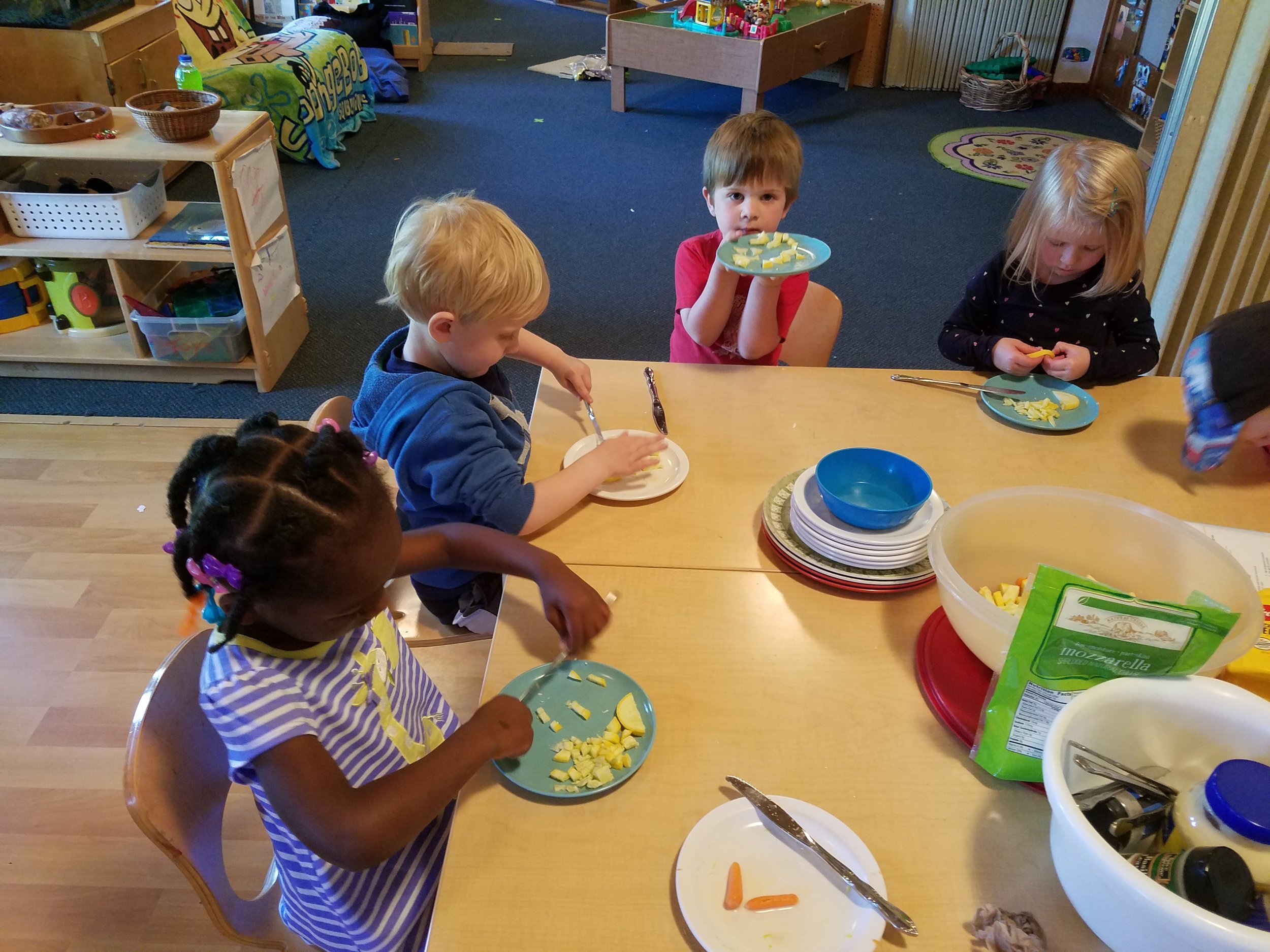Nutrition
Fresh, whole, natural
We believe sound nutrition is an important element in our lives. Our menus go beyond USDA requirments and reflect our belief. We favor fresh, whole and natural foods.
We serve a wide variety of fresh fruits and vegetables cooked minimally or not at all, to minimize nutrient loss and preserve the flavor and texture. In addition to nutrient loss, processed foods often contain chemicals, coloring, and preservatives which have unknown effects on the body. We serve whole grain breads, pastas, and crackers which contain more vitamins and minerals and are also higher in fiber than processed grains.
snacks and meals
Creek offers a morning and afternoon snack and a home-cooked hot lunch. Snacks are an important way to supplement the high-energy needs of preschool children who need to eat frequently throughout the day. We avoid highly processed and sugary foods, and plan the snack menus to supplement the lunch menu. Snacks provide protein, vitamins, minerals, and fiber as well as calories for energy. Some examples are fruit juice popsicles, whole grain crackers with cheese, or raw veggies with cottage cheese dip.
encouraging good eating habits
Eating habits are learned. There are many ways to influence the development of healthy eating habits. One way is to offer balanced, varied meals prepared with care which are appealing to children: visually and texturally. Another is to talk about food. Where does it come from? What is it? What is in the spaghetti sauce? Another way is to allow children a certain amount of freedom to regulate the amount of food they eat so they can become familiar with their own appetites. We also encourage children to be involved in the cooking process: from baking cookies for snack to planting a garden and growing tomatoes for the lunch salad.
Generally children can be trusted to eat a balanced diet when provided with a wide variety of wholesome foods. Occasionally, however, a child causes concern by seeming to eat less than is required to keep a sparrow alive. Though the impulse to “do something” is natural, we feel that it is more effective to allow children to discover the natural consequences of not eating (i.e. hungry) than to scold or nag them to eat throughout mealtime. By showing more attention to the children who are eating, we seek to decrease the attention-getting device of poor eating habits.
We recognize the importance of a positive atmosphere at lunch and snack time. We strive for a warm, relaxed environment which encourages adventure (trying new foods or food combinations) while accepting a child’s likes and dislikes. Though we feel it is disrespectful to require a child to eat everything on their plate, we strongly encourage children to try one bite of everything on their plate. This allows them a wide exposure to a variety of foods and often results in surprise (“Wow, Jessica had seconds on tamale pie!”). As children become familiar with food, (we repeat our menu cycle every four weeks) and when they see their friends eating enthusiastically, new foods become less threatening.
food allergies
Food allergies are becoming more common, and we have adjusted our food service to reflect this. We have a peanut and tree nut-free menu. Other allergies are handled on an individual basis. Any special dietary requirements can be discussed with the director to see what accommodations can be made.
Menus are posted weekly. We invite your involvement and welcome any suggestions or questions you may have.






